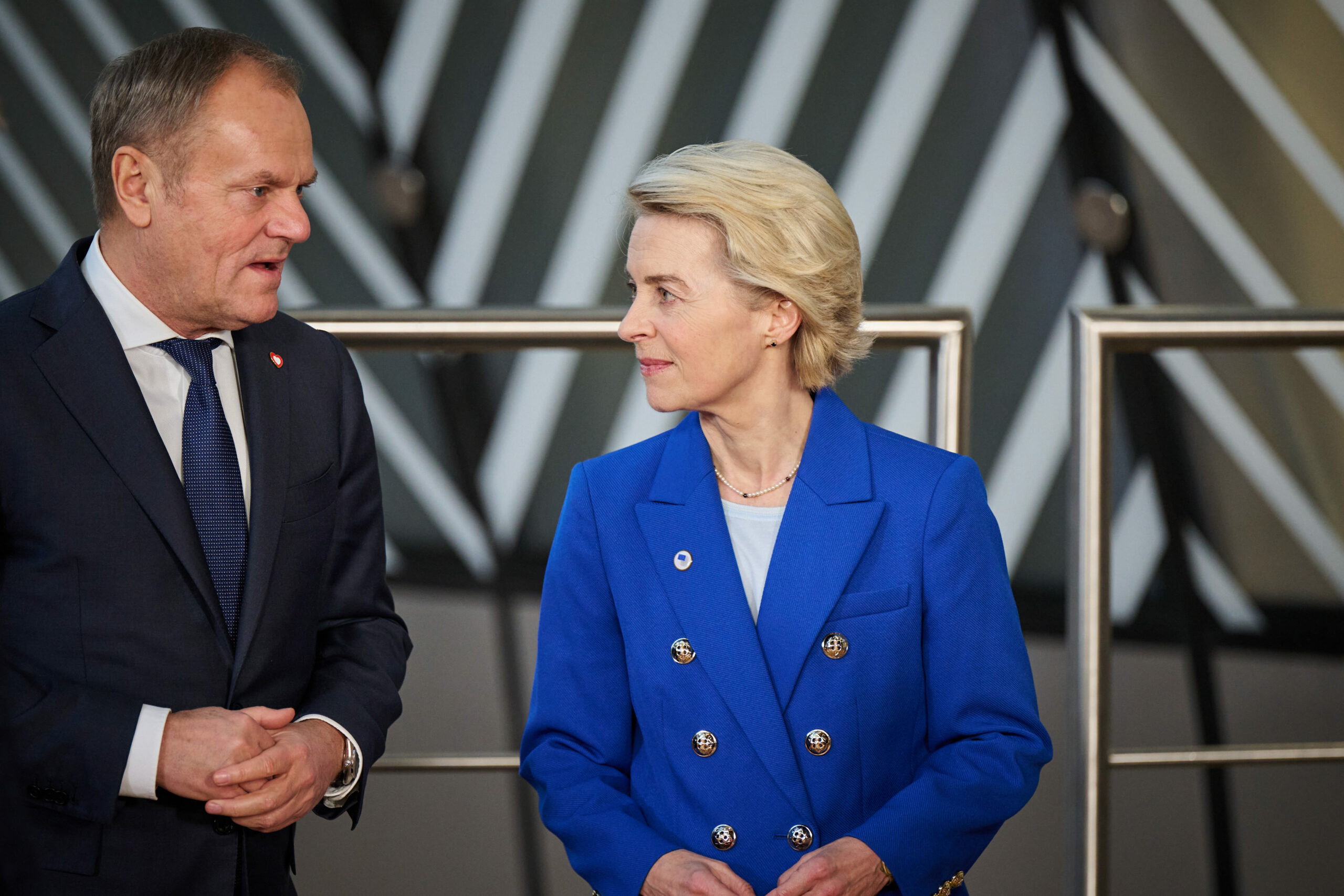Poland’s EU presidency, borders, environment: what’s coming up
Claudia Delpero
Poland took over the rotating EU Council presidency on January 1with the motto ‘Security, Europe!’.
The work programme of the Polish presidency, which will lead the EU Council’s activities over the next six months, focuses on “strengthening European security in all its dimensions: external, internal, economic, information, energy, food and health,” minister for EU affairs Adam Szłapka said in a statement.
“Together we will seek new solutions to comprehensively address the challenges of migration and security at the EU’s external borders, work to reduce irregular migration and strengthen the effectiveness of return policy,” the statement said.
Spirit of hope will mark Poland’s EU presidency
Cities built on Poles: success stories of Poland in NL
This is likely to remain a key theme when Denmark takes the EU Council helm in the second half of the year.
Borders
The Schengen area expanded on January 1 when Romania and Bulgaria started to remove internal land border checks as they became full members of the travel free area. However, both countries will continue random checks for six months to “prevent potential security threats arising from changes in migration patterns”.
The Netherlands also maintains border controls at land and air borders with Belgium and Germany at least until 8 June 2025 due to “pressure on the migration system.”
The EU should introduce this year the much anticipated new digital border system, the Entry/Exit System (EES), which will register non-EU citizens each time they arrive and leave the Schengen area. The EES, which aims to increase security by electronically verifying overstays or any previous entry refusal, will record travellers’ data in a huge EU-wide database.
Due to technical difficulties with the IT infrastructure, the system has been delayed several times and the European Commission is now pursuing “a phased approach” with some border crossing points going live, instead of all at the same time.
The start date is not known yet, but a proposal for the new roadmap should be presented in spring.
Travel authorisation
Six months after the EES, the EU will introduce a travel authorisation system (ETIAS) requiring non-EU nationals visiting the Schengen area for short stays to register and pay €7 before travelling.
A travel authorisation (ETA) will also be requested from EU citizens to visit Britain as of April 2. The online authorisation can be requested via an app or on the British government website from March. The ETA will cost £10 (€11.80) and will be valid for two years.
Environment and competitiveness
If the focus of the first commission led by Ursula von der Leyen was the Green Deal to make the European economy cleaner, the mantra for her second mandate is ‘competitiveness’.
In spring, the commission will present a ‘clean industrial deal’ and in June a proposal to remove obstacles to the functioning of the EU single market.
In February, a proposal is expected to ensure that items arriving in the EU via e-commerce platforms apply the same customs, tax, safety controls and sustainability standards as those sold within the bloc.
This could include an import tax on all packages from outside the EU (including the UK) and an end of the current exemption for parcels valued at below €150.
PFAS
Later in the year the commission is due to adopt a ban on PFAS, chemical substances called ‘forever chemicals’ for their persistence in the environment. The restriction proposal was prepared by the authorities of the Netherlands, Denmark, Germany, Norway and Sweden to protect human health and the environment but the final decision is likely to include several changes.
Meanwhile, new EU laws took effect this year to reduce waste. These include the requirement to collect separately textile waste. In this regard the Netherlands is requiring all companies placing textiles on the market to comply with extended producer responsibility (EPR) regulations and be financially responsible for managing their waste.
In addition, as of the end of 2024, all new mobile phones and portable devices sold in the EU must have the same charger, the USB-C, to put an end to the accumulation of electric and electronic items used for the same purpose.
Elections and anniversaries
An important moment for Europe will be 23 February, when Germany will go to the polls for the federal elections. With social media billionaire Elon Musk coming out in support of the far right AfD party, the elections will be a test on the growing influence of tech platforms over democratic processes.
Snap elections may be called in Austria as well, after talks to form a government without the far-right Freedom Party (FPO), voted the largest party in 2024, collapsed.
The EU also celebrates several anniversaries this year. 2025 marks 30 years since Austria, Finland and Sweden joined the European Union and 40 years since the Netherlands, Luxembourg, Belgium, France and Germany decided to remove border controls, creating the Schengen area.
Thank you for donating to DutchNews.nl.
We could not provide the Dutch News service, and keep it free of charge, without the generous support of our readers. Your donations allow us to report on issues you tell us matter, and provide you with a summary of the most important Dutch news each day.
Make a donation